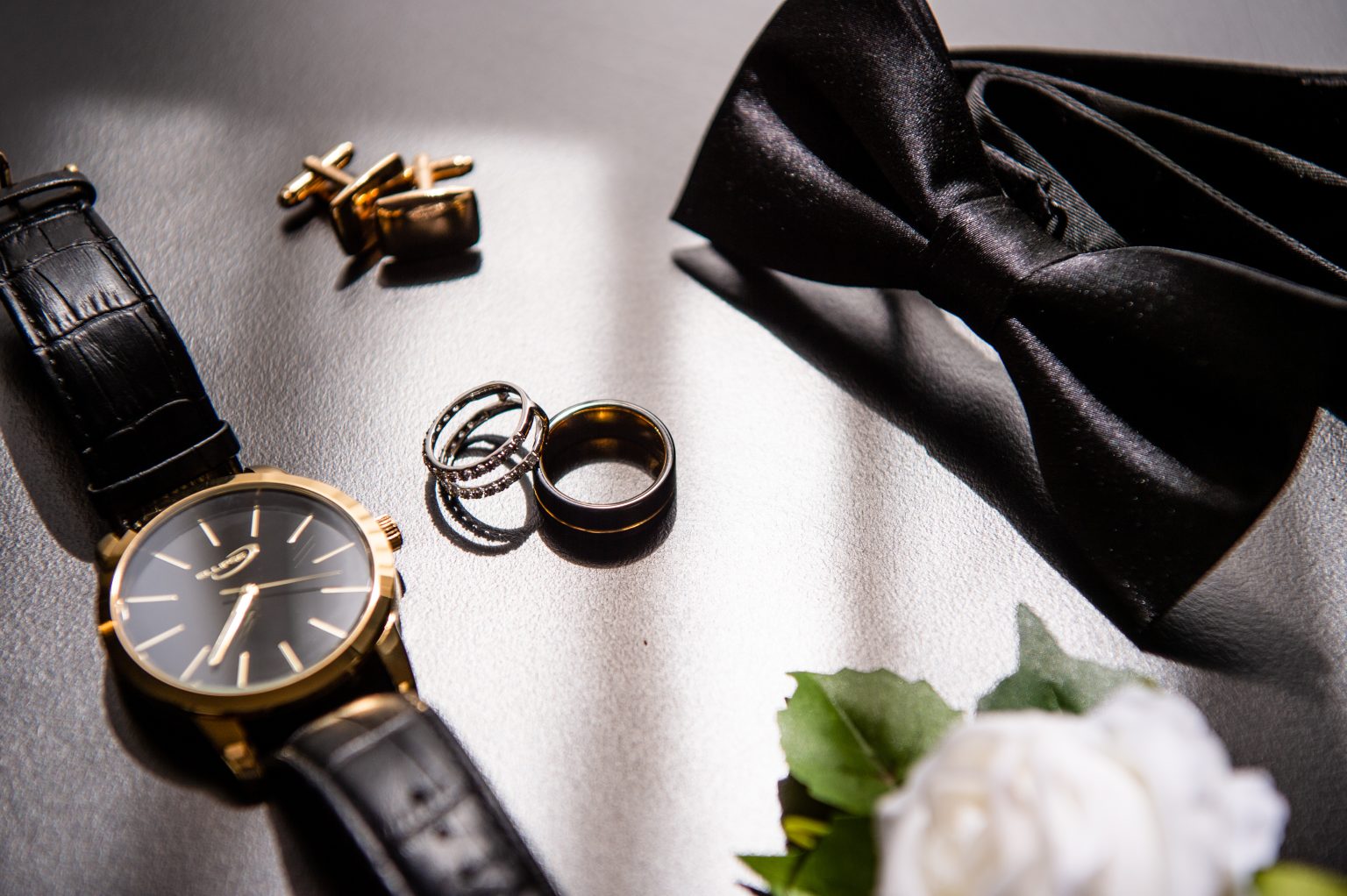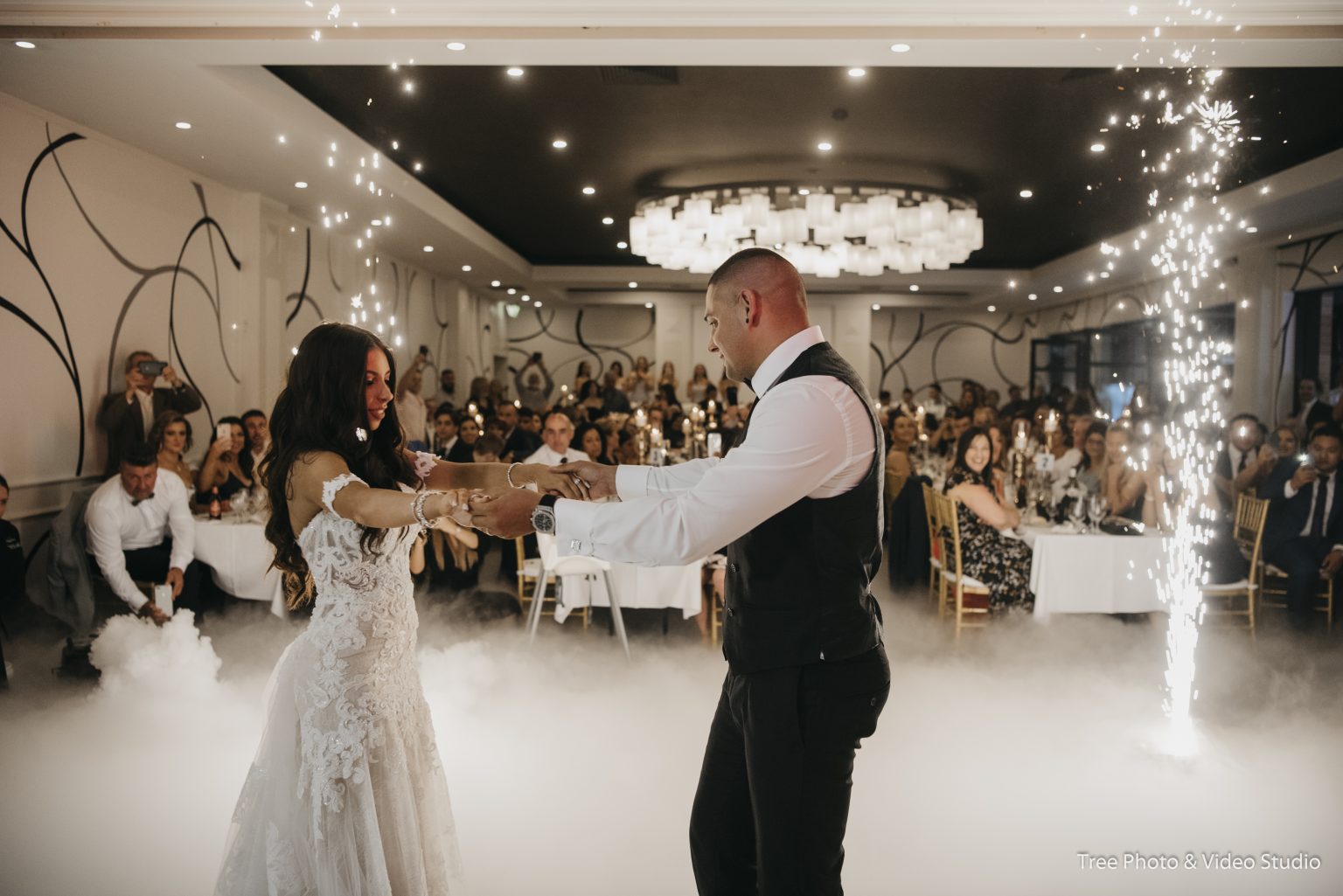In the sun-kissed lands of Greece, where history and culture intertwine like the branches of an ancient olive tree, lies a tapestry of wedding traditions and customs that have withstood the test of time. Greek weddings are more than just joyous celebrations; they are a testament to the profound sense of family, community, and heritage deeply ingrained in Greek culture. Steeped in symbolism and ancient rituals, these timeless practices weave a tale of love, unity, and blessings that have transcended generations.
Join us on a journey through the timeless beauty of Greek wedding traditions and customs, as we explore the rich tapestry of rituals, from the enchanting crowning ceremony to the rhythmic dances that enliven every celebration. Delve into the significance of the revered “koumbaro” and “koumbara,” who stand as pillars of support for the couple, and witness the tender exchange of blessings and vows that unite two souls in holy matrimony. As we immerse ourselves in the colors, flavors, and melodies that animate these cherished ceremonies, we uncover the heart of Greek weddings – a fusion of faith, heritage, and eternal love that ignites a flame of joy and celebration that burns bright and enduring through the ages.
Engagement and Wedding Preparations: The engagement period often involves the blessing of the couple’s rings by a priest. Pre-wedding preparations include parties, like the “Krevati” (making the bed) event, where friends and family help decorate the couple’s bed with flowers and gifts.
In the radiant embrace of the Mediterranean sun, Greek wedding traditions come to life, infusing every moment with a sense of timeless magic. Beyond the enchanting wedding day itself, the journey begins during the engagement and preparations phase. Rooted in rich cultural heritage and a deep sense of community, this period is filled with meaningful customs that bring families and friends together to bless the path of love. Join us as we unravel the captivating tapestry of Greek wedding traditions during the engagement and preparations, where love blossoms, bonds strengthen, and dreams take flight.
- Blessing of the Rings: As love sets sail towards the horizon of matrimony, Greek couples often seek the blessing of a priest for their engagement rings. During the “Blessing of the Rings” ceremony, the rings are blessed and anointed, signifying the sacred journey the couple is about to embark upon. This poignant moment echoes the ancient belief in the sanctity of marriage and the divine presence that guides their union.
- Krevati – Making the Bed: A cherished pre-wedding event, the “Krevati” symbolizes the preparation of the couple’s marital home. Close friends and family gather to decorate the newlyweds’ bed with delicate flowers, sweet-scented herbs, and playful trinkets, wishing them a life filled with tenderness, romance, and the bliss of shared dreams.
- The Koumbaro and Koumbara: At the heart of every Greek wedding is the guiding presence of the “koumbaro” and “koumbara.” These cherished figures, often the best man and maid of honor, play a significant role in supporting the couple throughout their journey. As witnesses to their love, they stand as spiritual mentors, offering wisdom and guidance for a joyous and prosperous marriage.
- Tasting the Sweetness: In sweet anticipation of the forthcoming union, the couple may partake in a delightful tradition known as the “gamokoulouro,” where they taste sweet bread together. The act symbolizes the sharing of life’s joys and sorrows and foreshadows the togetherness they will cherish in marriage.
- Seeking Parental Blessings: Before the wedding preparations are in full swing, the couple seeks the blessings of their parents, asking for their love and approval for the union. This cherished custom emphasizes the profound respect and honor for family ties in Greek culture, as parents bestow their love and wishes for a prosperous future upon their children.
- The Bridal Shower – “Miazi” or “Mantinades”: In the spirit of celebration, the bride’s friends gather for the “miazi” or “mantinades,” a joyful bridal shower. Filled with music, laughter, and heartfelt verses, this event celebrates the bride’s forthcoming nuptials and ushers in a sense of camaraderie among the women in her life.

The Greek orthodox wedding ceremony
The Greek Orthodox wedding ceremony is a deeply sacred and traditional event that reflects the rich religious and cultural heritage of Greece. Rooted in ancient customs and beliefs, this ceremony is a solemn union blessed by God, with each element carrying profound symbolism and significance. Here’s an explanation of the key aspects of a Greek Orthodox wedding ceremony:
1. Betrothal Ceremony: The Greek Orthodox wedding ceremony begins with the betrothal, during which the rings are blessed and exchanged between the bride and groom. The priest places the rings on the right ring finger of the couple’s right hands, symbolizing their commitment to one another and their intention to marry.
2. Crowning Ceremony (Stefana): The crowning ceremony, also known as “Stefana,” is the heart of the Greek Orthodox wedding. The koumbaro (best man) or koumbara (maid of honor) holds the wedding crowns, which are joined by a white ribbon, above the heads of the couple. This act represents the establishment of a new kingdom (marriage) and the couple’s commitment to rule it together. The crowns symbolize the bride and groom as the “king and queen” of their new life together, blessed by God.
3. Joining of Hands and Common Cup: During the ceremony, the priest joins the right hands of the couple, signifying their union and mutual support. The priest then offers the common cup, filled with wine, to the couple, who take three sips each, symbolizing the sharing of life’s joys and sorrows.
4. Marriage Blessing: The priest blesses the couple with prayers for a harmonious and fruitful marriage, seeking God’s guidance and grace upon their union.
5. Procession Around the Altar: In some Greek Orthodox wedding ceremonies, the couple may walk around the altar three times, representing their first steps together as a married couple and their commitment to building their life centered on their faith.
6. Stomping of the Glass: At the conclusion of the ceremony, the groom may break a glass with his foot, symbolizing the fragility of human relationships and the importance of cherishing and safeguarding the marriage.
7. Traditional Hymns and Prayers: Throughout the ceremony, traditional hymns and prayers are sung or recited, connecting the couple to their faith, community, and the divine blessing upon their marriage.
8. Importance of Witnesses (Koumbaro/Koumbara): The koumbaro (best man) and koumbara (maid of honor) play a crucial role in the ceremony, representing spiritual mentors and witnesses to the couple’s commitment to one another.
The Greek Orthodox wedding ceremony is a sacred and beautiful testament to the enduring significance of faith, love, and community in Greek culture. With each ritual and prayer, the couple and their loved ones are reminded of the profound spiritual bond that unites them and the blessings of God upon their journey as husband and wife.

Traditions with the big Greek wedding reception
Greek wedding receptions are joyous and festive occasions filled with cultural traditions and customs that celebrate the newlywed couple’s union. These lively gatherings bring together family and friends to partake in merriment, feasting, and dancing. Here’s an explanation of some Greek wedding traditions around the wedding reception:
1. Money Dance (Kalamatiano): A popular Greek wedding tradition is the “Money Dance” or “Kalamatiano.” During this lively dance, guests pin money onto the couple’s clothing as a way to contribute to their new life together. It is a symbolic gesture of love and support for the couple’s future and often accompanied by spirited music and enthusiastic dancing.
2. Traditional Dances (Syrtaki, Tsamiko, Zembekiko): Greek weddings are renowned for their traditional folk dances, including the famous “Syrtaki” and “Tsamiko.” These line dances involve guests joining hands and dancing in a circle, celebrating the couple’s happiness and unity. The “Zembekiko” is a solo dance that allows individuals to express their emotions through improvised movements.
3. Cutting the Wedding Cake: As with many wedding celebrations worldwide, cutting the wedding cake is a cherished tradition in Greek weddings. The couple shares the first slice together, symbolizing their shared future and the sweetness of their love.
4. Sharing Sweet Almonds (Koufeta): Sugared almonds, known as “koufeta,” are presented to guests as wedding favors. These sweet treats symbolize fertility, health, wealth, happiness, and a long life. Guests often take a small bag of koufeta home as a memento of the celebration.
5. Blessing Dance (Money Blessing): Guests may participate in the “Blessing Dance,” where they dance with the couple and pin money onto their clothing. This act symbolizes good luck and prosperity for the newlyweds.
6. Throwing Rice or Petals: At the end of the wedding reception, guests may throw rice or flower petals at the couple as they leave the venue. This custom symbolizes prosperity, fertility, and good fortune.
7. Traditional Greek Music: Greek wedding receptions are infused with traditional Greek music played by live bands or DJs. The lively tunes and rhythms inspire guests to join in the dancing and celebration.
8. Raucous Celebrations (Breaking Plates): In some regions of Greece, guests may engage in the playful tradition of breaking plates or dishes, known as “plate smashing.” This custom is believed to bring good luck to the couple and symbolizes the breaking of negative energies.
Greek wedding receptions are an embodiment of Greek culture’s vibrancy and sense of community. They are a time for loved ones to gather, celebrate, and wish the newlyweds happiness, prosperity, and everlasting love as they embark on their journey as a married couple.
The big Greek honeymoon
Greek couples in Australia have a wide range of options for their honeymoon destination. Some popular choices for Greek couples seeking a romantic and memorable honeymoon experience include:
1. Greek Islands: Many Greek couples in Australia choose to return to their homeland and explore the stunning Greek Islands. Santorini, Mykonos, Crete, Rhodes, and Corfu are among the most sought-after destinations for their picturesque landscapes, crystal-clear waters, and charming villages.
2. Australia’s Whitsundays: For those who wish to stay closer to home, the Whitsunday Islands in Australia offer a tropical paradise with beautiful beaches, luxurious resorts, and plenty of water-based activities such as snorkeling, sailing, and diving.
3. Fiji: Fiji is a popular honeymoon destination for Greek couples in Australia, with its breathtaking beaches, luxurious resorts, and vibrant marine life. The tranquil and secluded ambiance of the Fijian islands makes it an ideal place for romance and relaxation.
4. Bali, Indonesia: Bali is known for its exotic beauty, lush landscapes, and luxurious accommodations. It offers a perfect mix of adventure, culture, and relaxation, making it an attractive choice for a memorable honeymoon experience.
5. Maldives: The Maldives is renowned for its overwater villas, crystal-clear waters, and stunning coral reefs. It’s a dream destination for a romantic and secluded honeymoon.
6. Europe: Some Greek couples in Australia opt for a European honeymoon, exploring iconic cities like Paris, Rome, or Barcelona, or venturing into picturesque destinations like the Amalfi Coast or the French Riviera.
7. New Zealand: For an adventurous honeymoon, New Zealand offers breathtaking landscapes, from majestic mountains to stunning fjords, making it an ideal destination for nature-loving couples.
8. Seychelles: The Seychelles, with its idyllic beaches and lush tropical landscapes, is another dreamy and romantic destination favored by Greek couples.
9. Hawaii, USA: Hawaii’s unique blend of tropical beauty, diverse landscapes, and cultural experiences makes it a popular honeymoon choice for many Greek couples.
Ultimately, the choice of honeymoon destination depends on the couple’s preferences, budget, and desired experiences. Whether they seek relaxation on a stunning beach, cultural exploration in an exotic destination, or adventurous activities in nature’s embrace, there are numerous beautiful and unforgettable options available to Greek couples in Australia for their honeymoon.
